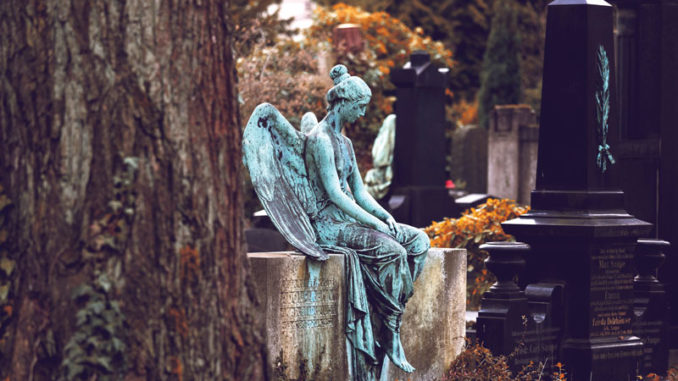
My religious community has long had the custom of having the sisters make a monthly day of recollection — sometimes in local groups, sometimes individually. As our “holy rule” prescribes, we sisters are to pray that day for the grace of a happy death.
Those who know our sisters well often remark that, collectively, we are quite good-humored and laugh a lot. That leads me to suspect that the ancient general superior and council that first promoted this intention as a matter for monthly reflection may have felt that we frivolous sisters could use a dose of gravitas.
Though it sounds rather grim and dispiriting, pondering one’s own mortality doesn’t turn out to be such a bad idea. During the pandemic, all of us have confronted the possibility of death, and a considerable number of us have lost relatives or close friends to COVID-19.
Some funeral Masses have been deferred or celebrated with very limited attendance. People we know are grieving the deaths of loved ones they were kept from seeing because of nursing home restrictions. And then we’ve all been confronted with images of ICU’s full of people on ventilators and consequent lines of coffins. Death has come to meet us, no matter how much we would prefer to avoid the topic.
For a believer in Jesus Christ, the Church provides us an annual cycle that pushes us to reflect on death. Lenten liturgies and Stations of the Cross, the Triduum, and the whole Easter season put us in touch with the dying and rising of our Savior.
We recall that we too are wrapped up in the paschal mystery. Put simply, we all know, deep down, that at some point we will die.
And then we find that faith frees us.
Trust in the Risen Lord gives us hope that, no matter what sadness or pain comes our way, death does not end our living. We have music and artistry that tries to picture the afterlife, but it inevitably falls short. Yet we do have some reliable clues. St. Paul speaks of our expectation of “meeting the Lord in the air” and having glorified bodies.
The risen Jesus is able to enter the upper room without being bothered by locks, appear on the road to Emmaus, stroll along with disciples, and then stop with them to break bread. He also shows up on a shore and cooks fish. We get the idea that after our own resurrection there will be something about us that is bodily and yet very different.
Risen life, we expect, will allow us to shed earthly limits. We also have testimony from the Book of Revelation and the visions of saints that give us a hint of the splendor of the beatific vision. “Eternal life” with God is full of joy.
In short, we sisters find that meditating on death is not a gruesome exercise. It reminds us that our religion is indeed a divine comedy. It assures us that the end of the story is not a body count. It is, instead, the gateway to glory.

